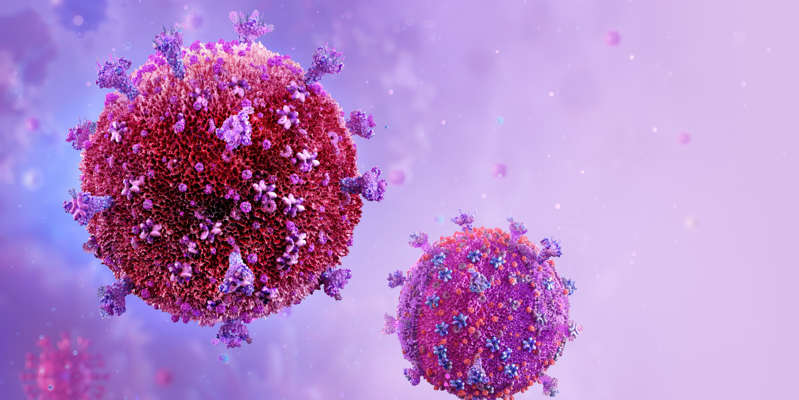Biologists have identified a protein that blocks HIV
Scientists from the University of Utah (USA) during research have identified a previously unknown protein retroCHMP3. It is able to block the formation of new particles of HIV and the Ebola virus, Cell reports.
This protein does not cause disturbances in the functioning of cellular systems. Interestingly, it is present in mice and monkeys, but not in humans.
Biologists noted that the new protein was linked to the ESCRT gene chain. Previously, it was believed that this chain helps viruses spread throughout the body, since they use it to copy themselves.
New research has helped to identify a natural mechanism that interferes with this process. The retroCHMP3 protein binds to fragments of viral envelopes and prevents the appearance of new viral particles.
As part of the experiment, scientists transplanted the retroCHMP3 gene into human cell cultures. It turned out that after this the cultures become invulnerable not only to HIV, but also to other pathogens. At the same time, healthy cells function without interruption.
Scientists have expressed the hope that this protein will become the basis for effective antiviral drugs in the future. But this requires a lot of research.
Earlier, a Canadian scientist called “patient zero” of HIV infection. It could be a soldier of the British, French or Belgian troops. During the First World War, some units were sent to Cameroon, which was then a French colony. A soldier could have become infected in the woods while hunting wild chimpanzees. Arriving then in Leopoldville (now Kinshasa), he began to spread information. By the beginning of the 1950s, about five hundred people were its carriers, then their number began to grow exponentially.

